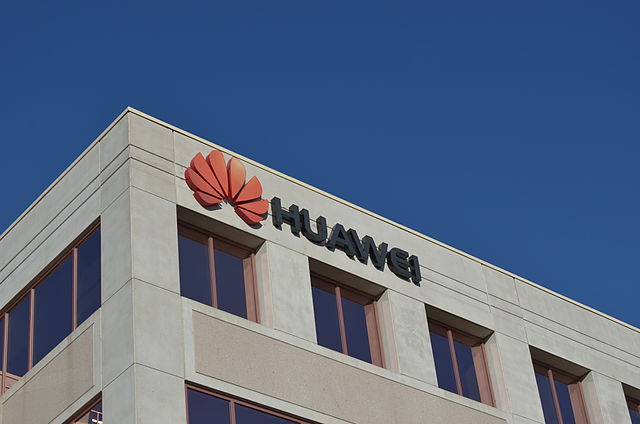Canada and the Rule of Law in the Meng Wanzhou Matter
The U.S. criminal case against Huawei for sanctions-busting and fraud, and against its chief financial officer, Meng Wanzhou, for fraud, may prove an example of geopolitical “lawfare,” fought on many fronts.

Published by The Lawfare Institute
in Cooperation With

The U.S. criminal case against Huawei for sanctions-busting and fraud, and against its chief financial officer, Meng Wanzhou, for fraud, may prove an example of geopolitical “lawfare,” fought on many fronts. One campaign opened this week, with a new Huawei constitutional challenge to its blacklisting by the Trump administration. But north of the border, Canada—much to its discomfort—has become the most active theater of legal conflict.
The State of Play
In December 2018, Meng was intercepted by Canadian authorities in Vancouver, briefly detained under immigration measures and then arrested under a warrant issued in support of a U.S. provisional extradition request. The Chinese responded by detaining two Canadian nationals (including a former diplomat) for alleged spying and reconvening a completed criminal proceeding in which a Canadian was convicted of drug offenses. The Chinese government continues to detain the two Canadians on national security grounds—and in an unusual proceeding, Chinese officials sentenced the drug crime defendant to death.
This Chinese conduct, along with hectoring by Chinese government and diplomatic officials accusing Canada of “white supremacy” and “Western egotism” in the controversy, has raised the political stakes in Canada. The Canadian government is now caught between a Trump administration widely regarded as volatile and a second great power now inclined to a more assertive foreign policy, China. Canadian efforts to thread the needle in its relations with these states have been hampered by uneven public messaging on the government’s part that has sometimes departed from a judicious description of how Canadian extradition law works. Canada’s ambassador to China, for instance, resigned after positing that the U.S. extradition case was weak—an incautious and likely exaggerated claim almost certainly made without due authorization.
Those extradition legal proceedings are now progressing. At the end of January, the United States filed a formal extradition request under the Canada-U.S. extradition treaty. Last week, the Canadian justice department issued an “authority to proceed” with an extradition committal hearing before a judge. That hearing began this week.
But also this week, Meng filed a civil action against Canadian border and police officials. This lawsuit alleges officials conducted pretextual border detention, questioning and searches (including of her electronic devices) in aid of U.S. authorities, not in support of Meng’s arrest for extradition purposes. The allegation seems to be, in other words, that Canadian border officials acted for reasons extraneous to their immigration, customs or (warrant-authorized) extradition powers.
The legal battle in Canada will now be contested in two proceedings, both probing controversial areas of Canadian law: extradition law and constitutional rights at the border.
Extradition Law: Designed to Facilitate Surrender
As is true in many countries, Canadian extradition proceedings operate very differently than do criminal trials. The court proceeding—deciding whether Meng should be “committed” for extradition surrender—is comparatively perfunctory. It amounts, in essence, to a court certifying the alleged crime at issue would be capable of being committed for criminal trial in Canada. This assessment is built around modest evidence—in this instance, the unsworn material in the file on Meng’s case provided by the United States.
Committal hearings rarely stand in the way of extradition. That said, Meng’s counsel are better funded than those in the average extradition case and are expected to test uncertainties in Canada’s Extradition Act and the U.S. case under it. President Trump has provided ammunition for this defense strategy, by repeatedly suggesting he views the Meng matter as a pawn in the broader U.S. negotiations with China over that country’s economic policies. Such statements invite “abuse of process” claims before the Canadian court. Abuse of process remedies apply in many different legal proceedings and preserve the court’s ability to order remedies where a party’s conduct undermines the integrity of the justice system. Here, the likely claim is that the United States is using the Canadian justice system in a geopolitical game of chicken. Abuse of process claims are notoriously difficult to win, and even where there is an abuse of process, a court may not necessarily end the proceedings. An abuse of process claim has, however, prevailed in at least one previous extradition case in which the court assessed that the United States engaged in egregious misconduct.
Meng’s counsel should be expected also to challenge the extradition on “dual criminality” grounds. Under both the Canada-U.S. extradition treaty and the Canadian statute, extraditable crimes must be offenses in both the United States and Canada. Wisely, the United States has not sought extradition for sanctions-busting, where U.S. law is substantially more sweeping than Canadian equivalents. Instead, the extradition request is grounded in fraud. This is, however, fraud with a limited connection to the territory of the United States. Because Canadian criminal law is less expansively extraterritorial than the U.S. law, inventive counsel are likely to urge that the extraterritorial nature of the conduct should be considered in assessing the dual criminality requirement. Still, the dual criminality requirement in Canadian law has so far proved a modest hurdle for prosecutors in extradition proceedings—Meng will face an uphill battle.
Indeed, statistically, it seems unlikely Meng will succeed in quashing the extradition proceeding at the committal hearing—very few cases end at that stage. If the court orders her committed, the matter then returns to Canada’s justice department, in the person of its current minister, David Lametti. Lametti would then need to decide whether to order Meng’s surrender to the United States. The Extradition Act lists considerations for the justice minister to address . For instance, the minister cannot order surrender where the extradition would be unjust or oppressive in the circumstances.
The minister’s decision might also consider the extraterritoriality issue. The Extradition Act provides that “the Minister may refuse to make a surrender order if the Minister is satisfied that ... none of the conduct on which the extradition partner bases its request occurred in the territory over which the extradition partner has jurisdiction,” a provision consistent with the Canada-U.S. extradition treaty.
The U.S. position may be that the dollar-based nature of Meng’s alleged fraudulent transactions touched U.S. territory. Canada has, however, historically opposed the United States’s expansive position on extraterritorial regulation. It may, therefore, have strong foreign policy reasons not to embrace or endorse the U.S. extraterritoriality in this case. This preoccupation may be aggravated by secondary sanction threats leveled in the context of the U.S. withdrawal from the Iran nuclear weapons deal. Canadian concern about U.S. extraterritoriality might also be exacerbated by the Trump administration’s threatened application of secondary sanctions against foreign companies operating in Cuba under the Helms-Burton Act.
Meng will also likely point the minister to another rule found in the Extradition Act: The minister may not order surrender where “the conduct in respect of which extradition is sought is a political offence or an offence of a political character.” The argument would depend, again, on pointing to Trump’s statements politicizing this case. It is unclear, however, whether an otherwise conventional offense based on an indictment in a U.S. federal court can be converted into a political offense through the Twitter musings of the chief executive.
In the end, the justice minister has considerable discretion in ordering surrender—a fact that one must expect the Chinese to understand fully. The minister’s decision may be judicially reviewed, and indeed a considerable number of extradition matters have reached the Supreme Court of Canada. However, that court has emphasized the deference owed to the minister on these matters, pointing to the minister’s comparative expertise in weighing competing political considerations, in the policy (not partisan) sense of the term. Not least: While justice ministers are not the logical depository of foreign policy expertise, the court has suggested foreign relations is one reason to defer to them. This means it would be difficult to challenge successfully the minister’s decision to surrender Meng.
Rights at the Border
As Meng’s extradition proceeding winds on, so too will her new lawsuit against Canadian police and border officials for false imprisonment, misfeasance of public office and breaches of Canada’s constitutional Charter of Rights and Freedoms. Her action, seeking monetary damages, is only loosely related to her other legal matters. Damages, of course, will not provide any assistance in her extradition and possible American criminal case. For one thing, anything acquired from the border search is likely irrelevant to a U.S. criminal indictment stemming from a distant fraud done years ago in another part of the world.
The lawsuit may, however, compound her abuse of process claim: A pretextual customs and immigration proceeding in which U.S. officials leveraged Canadian border powers, prior to an outright arrest in the extradition matter, might sit poorly with the court at the committal hearing. But Meng’s case also raises the stakes for the government in a sensitive area of constitutional law: constitutional rights—especially concerning search and seizure—at the border.
With a handful of exceptions irrelevant here, Charter rights attach to all people in Canada, regardless of nationality or immigration status. But, as in the United States, the government takes the view that constitutional rights are more attenuated at the border. The government makes no legal distinction between its powers to search suitcases and smartphones—although it does apply a higher threshold for searches of the latter by policy.
The Supreme Court of Canada’s case law on border searches is decades old. Since then, in domestic search and seizure cases, the court has adopted broad protections for searches of electronic devices. It remains to be seen whether it will adjust its border search doctrine to keep pace. There is, in other words, an important legal issue at stake in the Meng lawsuit.
Conclusion
The United States could withdraw its extradition request —a solution that would likely be greeted with relief in Canada. But this political solution seems unlikely in the medium term—and the Meng matter will continue to press and probe two challenging areas of Canadian law. A well-financed litigant prepared and able to fight up the appeal chain may develop important standards in extradition law and also help refine what sort of Charter rights travelers have at the border. This illustration of the “rule of law in action” would be a deeply ironic outcome to a legal dispute in which China has responded with hostage-taking.





